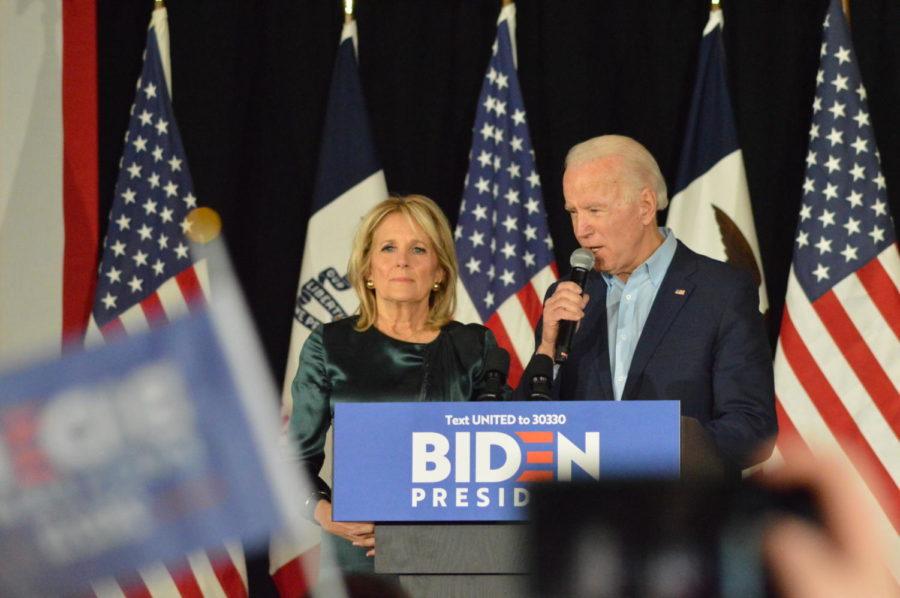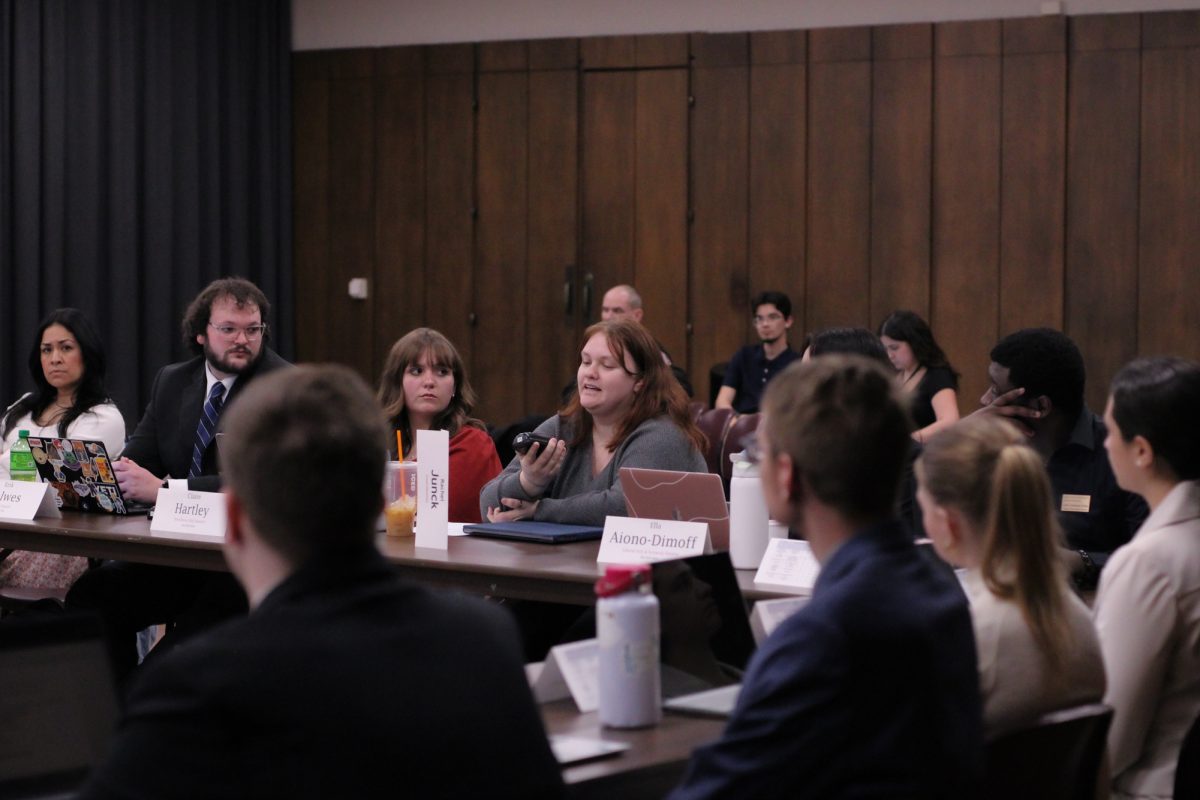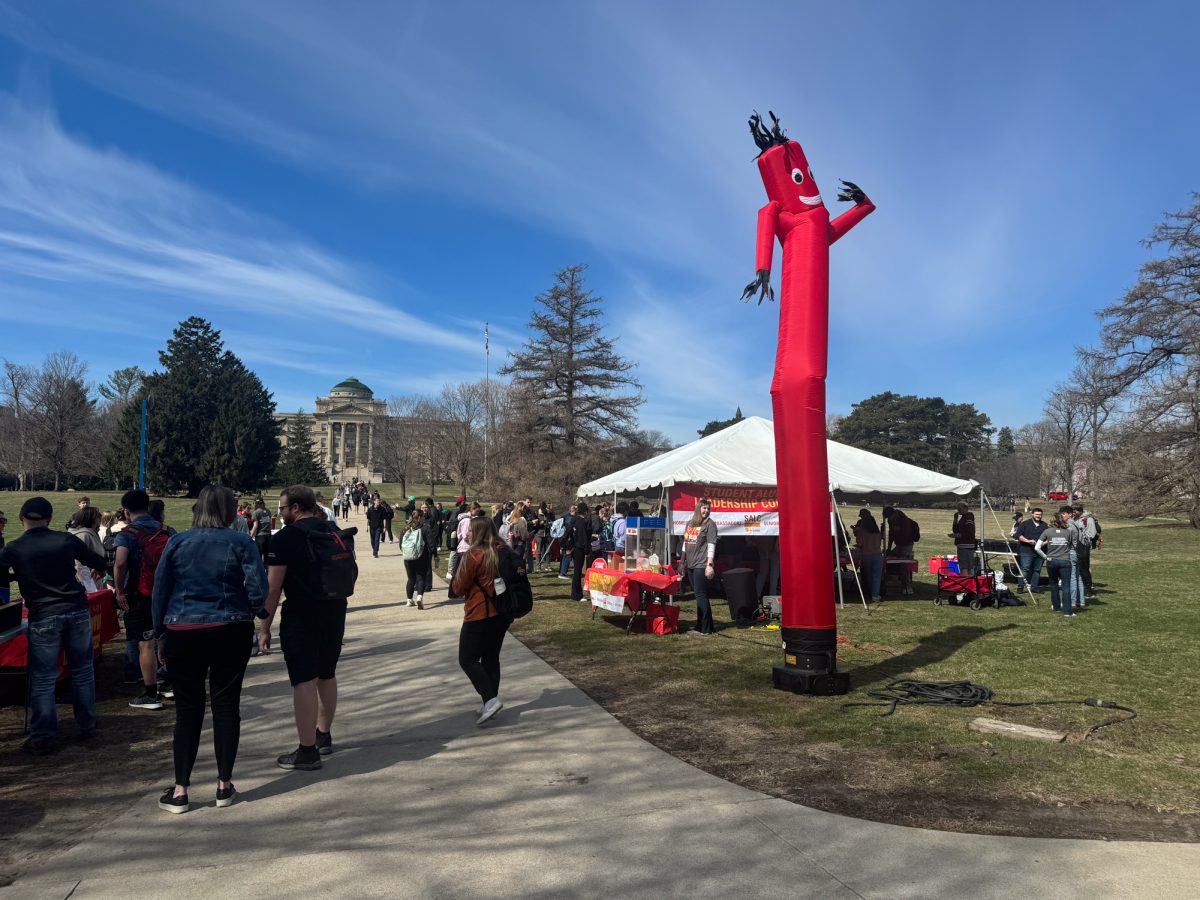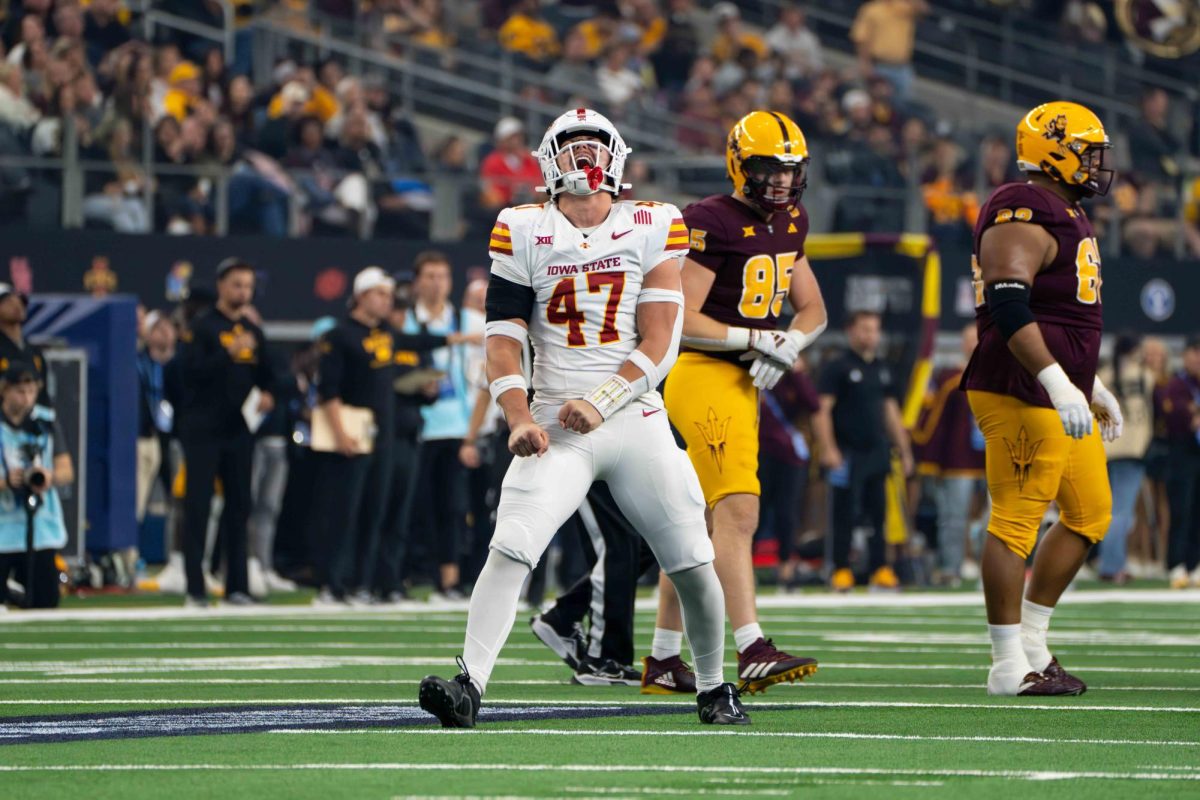As COVID-19 increases Biden’s public approval decreases
Former Vice President Joe Biden and former second lady Jill Biden speak to supporters Feb. 3 in Des Moines after the Iowa Democratic caucuses.
January 23, 2022
As President Joe Biden surpasses the first quarter serving in office, opinion polling exemplifies the public’s dismay with the administration.
In August, Biden’s approval ratings began to dip, and by January, he had seen a high of 53.5 percent disapproval rating. Iowa State University President of Turning Point USA Armaan Gupta, a sophomore in pre-business, said Biden campaigned on a promise of ending the pandemic, which former President Donald Trump was unable to do.
“I have no problem if someone wants to come in and fix everything,” Gupta said. “The problem is I think we just didn’t see that happen… Regardless of whether it is doing worse or bad, it is still going on despite anything he has done.”
In December 2021, during the COVID-19 response team’s regular call with the National Governors Association, Biden stated there are no federal solutions, and the pandemic would have to be resolved at the state level.
Gupta said he agrees there is no federal solution, but Biden campaigned as if he had one.
On the grand scale, the world is in a better position to battle a pandemic than in the past because of the industrialization of vaccine production and scientific advancements, Iowa State University Chairman of the Political Science Department Mack Shelley said. Since the outbreak of COVID-19, there have been over 5.5 million deaths globally and over 865,000 deaths in the U.S.
“That is not to say this is a wuss pandemic, it definitely isn’t, but at least we do have modern communication systems that say ‘hey this is where you go to get vaccinated’,” Shelley said. “Do people necessarily go and get vaccinated? Well, no. Is it the fault of the administration that people don’t go and get vaccinated? Well, no.”
Over the last two years and change, the pandemic has been politically weaponized. Right-wing media, in particular, has used promoted anti-vaccination messaging as a recruitment tool, only perpetuating the pandemic further, Shelley said.
“Biden is not in good shape as he is right now,” Shelley said. “And largely because he is not in good shape the Democrats are really running scared right now.”
Alexander Fisher is a senior majoring in political science at Iowa State; he said he thinks Biden has managed the vaccination rollout to the best of his ability considering the opposition for vaccinations in the current partisan political climate.
Gupta said Biden’s biggest failure during the pandemic is testing shortages. At the end of 2021, the Biden Administration announced it would distribute free, at-home COVID-19 rapid testing kits. These kits can be ordered at Covidtest.gov but won’t be shipped to people for several more weeks. While the cost of the 500 million testing kits is yet to be determined, the expense will come from the $1.9 trillion coronavirus relief bill that Biden signed in March.
“Democrats are controlling everything on the federal level, and his approval ratings are down,” Gupta said. “So I think across the nation people are maybe going to think Democratic policies aren’t working. If they are not working federally why would they work locally?”
Included in Biden’s stimulus package were direct payments and increased unemployment benefits. Gupta said the Biden Administration’s solution to the pandemic is overspending which contributes to inflation. As inflation rises, the supply chain shortage also persists. This is creating too much money chasing too few goods, Shelley said.
While Americans are spending money, ports and rail lines lack drivers to move freights, in addition to difficulties in securing freight containers to deliver the goods, according to the Associated Press.
“The thing that makes the situation so severe on the inflation front is it is just difficult to get the goods that people need to them quickly enough to clear the market and soak up the money basically,” Shelley said.
In The Great Depression, President Franklin Roosevelt attempted to stimulate the economy by enacting the New Deal. The New Deal was often portrayed as socialist legislation and faced opposition from a conservative Supreme Court.
“I could see how some people would want to compare it (the pandemic) to the Depression to then relate it to how we may need some sort of New Deal,” Gupta said. “The New Deal was inspirational to see somebody come along with new ideas but it was also government overreach in so many areas and very big expansion of federal power.”
While Fisher acknowledged, the situations differ greatly but said polarization between the two parties on how to resolve the crisis of the pandemic mirrors that of the Depression.
“These trends in argumentation in the media and public opinion trends today are real clear echoes of ideas that have been fighting against each other for a really long time,” Shelley said. “Pretty much anytime there is a major federal government effort to rescue the economy, it is seen as socialism.”
Democrats have said President Joe Biden’s Build Back Better bill could fight inflation. The social spending bill calls for $1.75 trillion over a decade, funding health care subsidies to clean energy.
“From what I can see is there are a lot of people who are very angry with how the Democrats aren’t working, at least in their view, to make their lives better,” Fisher said. “And that the Republicans are hindering any action the Democrats actually do. So I don’t think there will be a red or blue wave when it comes to the midterms, but depending on the state we will see a lot of transferring of seats.”
Fisher said the Build Back Better bill could be a solution to inflation which has been taking place over the last two decades, but the results wouldn’t be apparent in time for the midterm elections.
Any federal action to save capitalism is treated like socialism, Shelley said, which is a nuance that seems to be at the bedrock of opposition towards social spending legislation.
“It isn’t like there is a master plan to have redflags with a hammer and sickle hanging over the White House, that is not at all what is happening, it is almost the exact opposite,” said Shelly. “It is another one of these efforts to save capitalism, basically to save it from itself, or at least save it from problems it just can’t seem to solve otherwise.”







